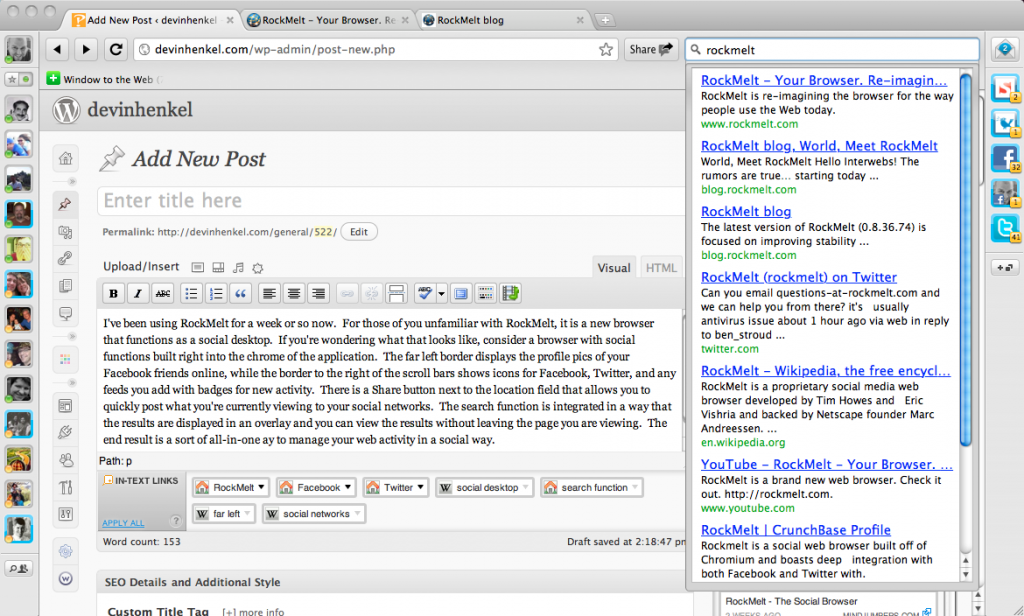I’ve been using RockMelt for a week or so now. For those of you unfamiliar with RockMelt, it is a new browser that functions as a social desktop. If you’re wondering what that looks like, consider a browser with social functions built right into the chrome of the application. The far left border displays the profile pics of your Facebook friends online, while the border to the right of the scroll bars shows icons for Facebook, Twitter, and any feeds you add with badges for new activity. There is a Share button next to the location field that allows you to quickly post what you’re currently viewing to your social networks. The search function is integrated in a way that the results are displayed in an overlay and you can view the results without leaving the page you are viewing. The end result is a sort of all-in-one ay to manage your web activity in a social way.
RockMelt is not the first browser to integrate social features into the browser; In 2008, Flock released the first “social browser,” which had many (but not all) of the same features as RockMelt. So, where does RockMelt have an advantage over Flock?
First, there’s timing. In the past couple years, we’ve reached a tipping point in social media usage. In that time, many times more people are active in social spheres. For a social browser to gain market on an ordinary browser, the social capabilities would need to be important to the user. Now, it seems, is the time when enough people are engaged in social media for those features to be important. While Flock is still around, it needs to make some noise for people to become aware of it again.
Second, there’s the technology. I was a fan and frequent user of Flock for quite some time. I switched to Chrome when it came out due to speed and extensibility. To date, there are two extensions for Flock. I’m sure that number will increase, but RockMelt is built on the Chromium platform, so you can install all your favorite Chrome extensions. Second, it’s been my experience that RockMelt is a faster browser. I assume that is a result of it being built on Chromium.
Finally, there’s the experience. Flock seems to do a better job of unifying the browsing and social experiences. The overlays RockMelt uses allow for viewing and reacting to social activity without the need to navigate away (either to another tab, window, or application). While Flock had the controls and push updates, I still felt the break in continuity when I clicked on the badges to see what was going on. In short, with RockMelt, I don’t have to stop doing what I’m doing to see what others are up to.
It will be interesting to see how this plays out. Will a game of one-upsmanship begin? Will Flock upgrade its experience? Will traditional browsers attempt to tackle and integrate these features? I anticipate that the way we interact with the web with each other will continue to evolve. I can’t wait.



